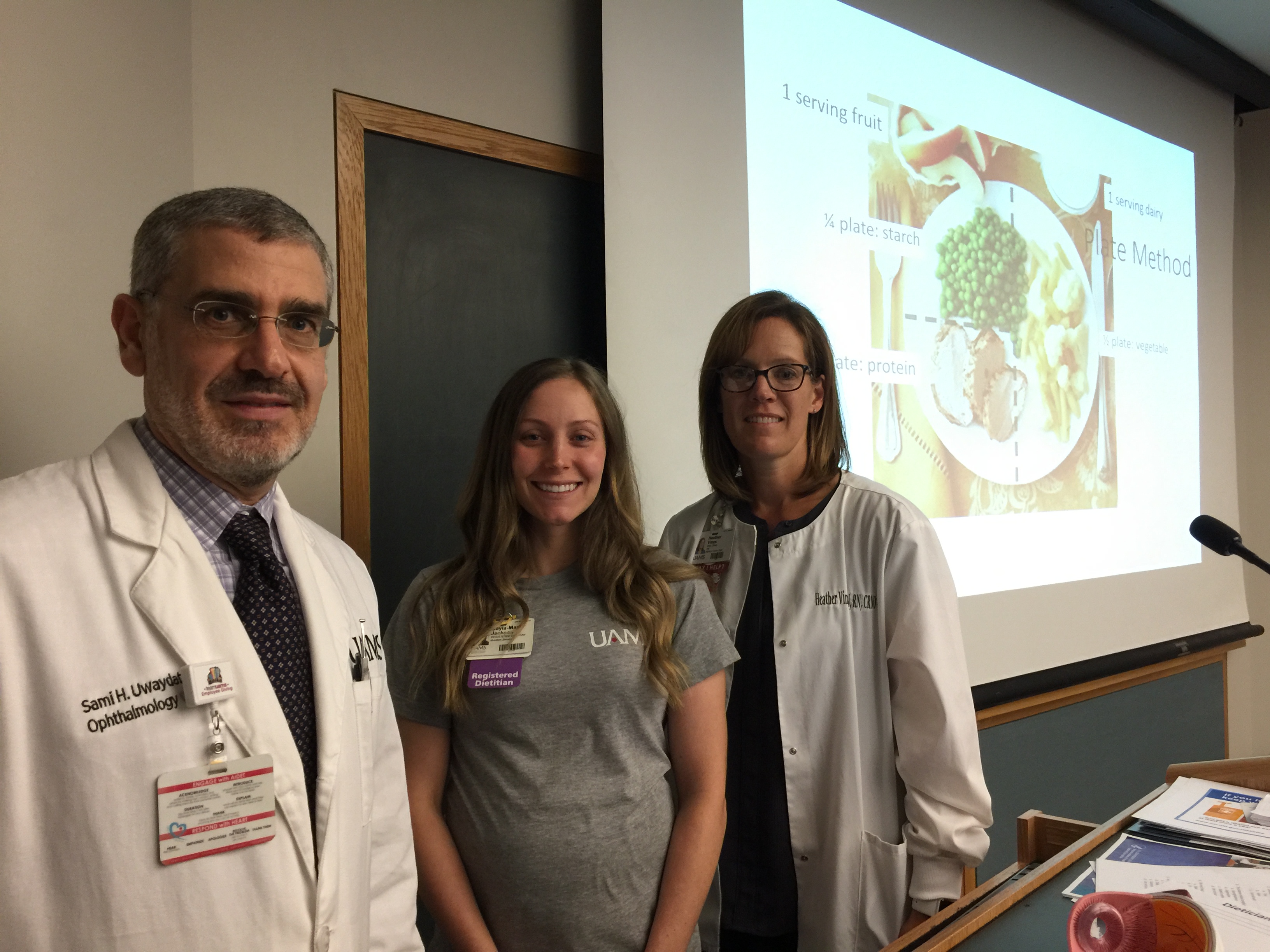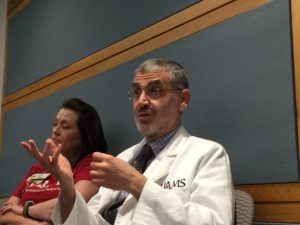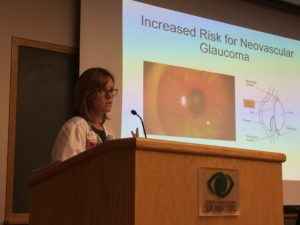Seminars Offer Education on Eye Health and Nutrition for Diabetes Patients
| About a dozen participants turned out for the second in a series of ongoing seminars at the UAMS Harvey & Bernice Jones Eye Institute to help educate those with diabetes about the dangers it poses to eyesight and how to eat heathier.
The series featured presentations on eye damage by Heather Vines, B.S.N., RN, and Cayla-Marie Jackson, a licensed dietician, on healthy eating with diabetes. Sami Uwaydat, M.D., interim chair of the UAMS Department of Ophthalmology, was also on hand to answer questions.
“We want everyone to understand the progression of diabetic eye disease and how they can prevent complications,” said Vines. “I like this approach of providing people with education about the eyes while also equipping them with tools to help themselves.”
The first seminar was held in June and a third is planned for Nov. 15.
About 8 million people have diabetic retinopathy, but only about half of diabetes patients receive follow-up eye exams and routine monitoring. That makes diabetes the leading cause of blindness.
“There is a huge need for more education, and these seminars fall right in line with Dr. Uwaydat’s vision for reaching the diabetic needs of our state,” Vines said.
The hour-long seminar begins with an easy-to-follow explanation of how uncontrolled high blood sugar can lead to weak blood vessels, including the tiny vessels of the eye. That can lead to damage in the eye that can cause permanent vision loss.
The damage can be treated when detected early, but it starts occurring before symptoms begin and often goes undetected – sometimes for years. She advised participants to routinely get eye exams to monitor their condition.
“The best treatment is prevention,” Vines said.
Jackson offered simple dietary advice for healthy eating with diabetes, including eating consistently and counting carbohydrates, which are the nutrients that raise blood sugar levels.
“What we eat does impact our eye health,” Jackson told participants. “Many patients rely on their medication to control blood sugar, but a properly controlled diet with exercise can also help control blood sugars.”
Jackson identified many common sources of carbohydrates and then walked participants through the process of reading nutritional information labels and counting their daily carb intake meal by meal.
“There’s a lot of fear about eating with diabetes, but when you can read the label and stick to serving sizes, it can take the fear and questions out of different foods,” she said. “Probably the most common question I get is, ‘What can I eat?’ You have the power to answer that question when you read the label and do the math.”
A take-home packet of information given to each participant provides further information, educational resources and reinforcement of the material presented.
Vines said she would like to incorporate cooking into the nutritional education.
“My long-term goal is to bring culinary medicine on board to provide healthy cooking options to our seminar participants,” she said. “You can look at the statistics and see that diabetes really is an epidemic. Change needs to start in the community. We are only a small part of that change, but every little bit can make a difference.”


